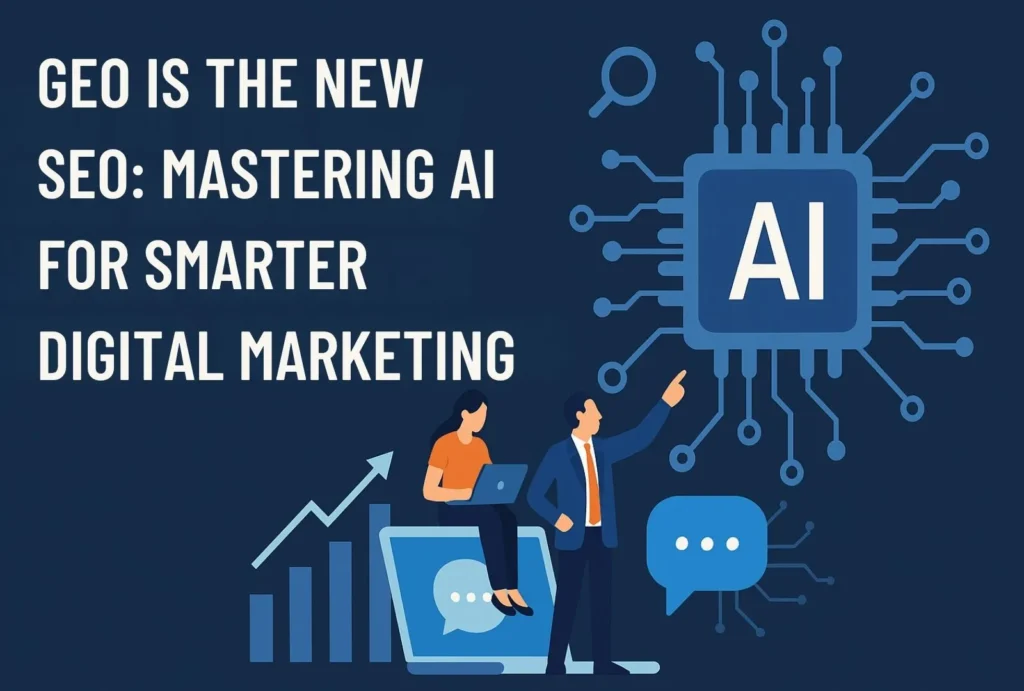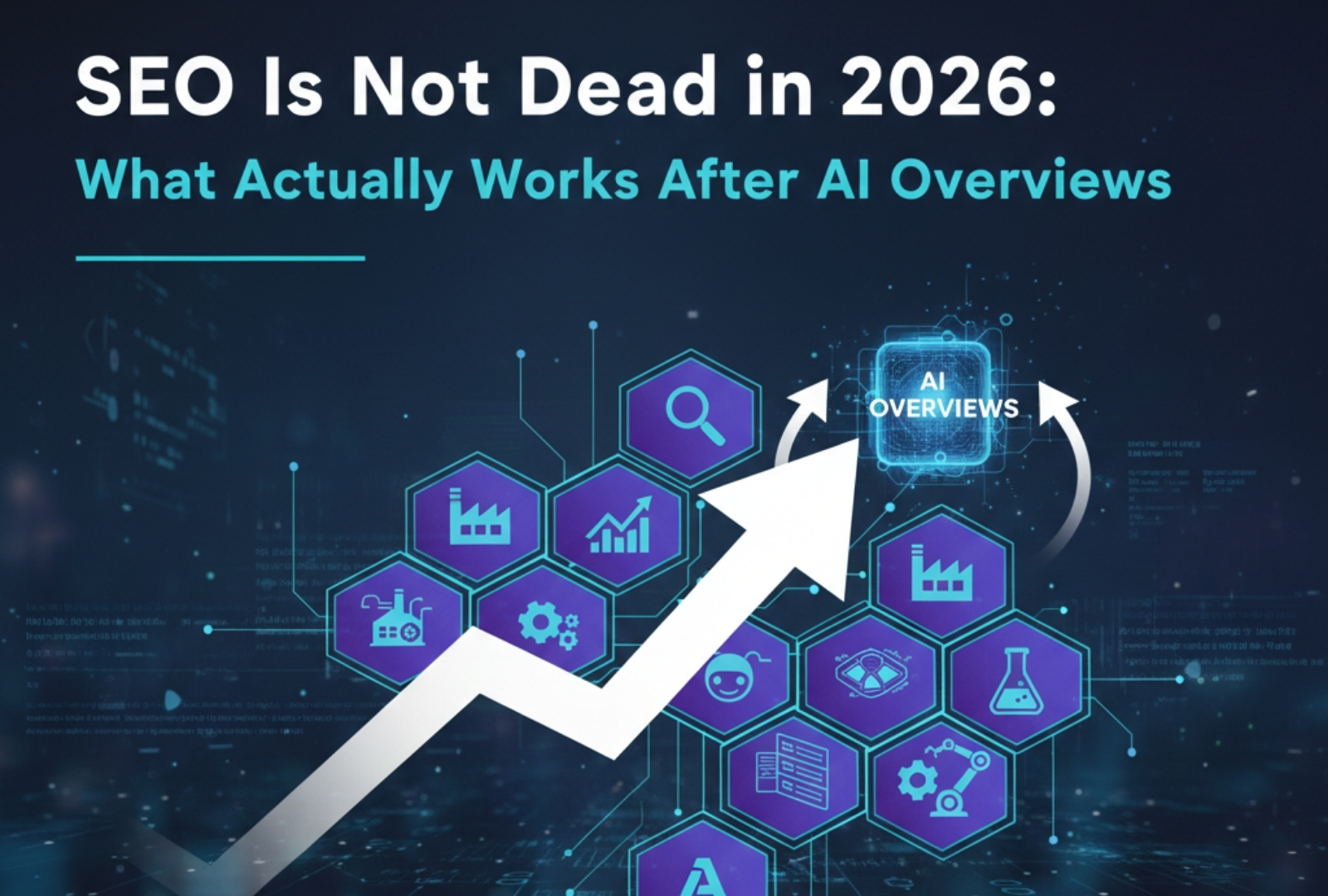In the world of digital marketing and artificial intelligence, few trends are making as significant an impact as Generative Engine Optimization (GEO). This emerging discipline is reshaping how content is created, how search engines interact with websites, and how digital strategies are executed. With AI tools like ChatGPT transforming the way users search for and consume information, businesses must adapt or risk falling behind.
This article will delve into the core concepts of GEO, explore its differences from traditional SEO, and offer practical guidance on how organizations can leverage this new form of optimization to maintain competitiveness in a quickly changing digital market and boost online presence.
What is Generative Engine Optimization?
Generative Engine Optimization refers to the process of optimizing digital content not just for traditional search engines like Google, but for generative AI engines like ChatGPT, Bing Chat, and Google’s Bard. These AI-powered search platforms deliver synthesized, often conversational, responses rather than lists of web pages.
Unlike SEO, which focuses on keyword rankings and backlinks to climb search engine results pages (SERPs), GEO aims to have a brand or source cited, summarized, or recommended directly within AI-generated responses. This requires a different strategy shaped by machine learning algorithms and natural language processing models.
How GEO Differs from Traditional SEO
To understand GEO’s unique approach, it’s essential to compare it to SEO. Below are key differences:
- Content Intent: SEO focuses on ranking for a specific keyword query, while GEO optimizes for the type of content AI models prefer when generating answers.
- Search Interface: Traditional search results offer clickable links; in contrast, generative search delivers answers directly, sometimes without directing users to external pages.
- Optimization Techniques: While SEO uses meta tags, on-page and off-page signals, GEO employs a combination of information accuracy, relevance, structure, and authority in formats AI engines can easily parse.
- Outcome Goal: SEO aims to drive clicks through visibility in SERPs; GEO focuses on brand inclusion in AI conversations and response summaries.
Why GEO Matters in the Era of AI-Driven Search
Users are increasingly using generative engines to find information. As people grow comfortable asking AI models complex questions, their reliance on traditional search engines may decrease. This scenario creates significant stakes:
- Loss of Organic Traffic: If your site is not referenced in AI-generated answers, it might receive less traffic despite having quality content.
- Brand Visibility: Inclusion in an AI’s response improves credibility and awareness, especially if the model identifies your brand as a source or expert.
- Competitive Advantage: GEO provides a chance to surpass rivals who are still only using conventional SEO techniques.
Generative engines also tend to draw from a narrower, more authoritative set of sources, meaning that establishing expertise, trustworthiness, and structured content becomes even more essential in the world of GEO.
The Core Mechanisms Behind Generative Engines
Understanding how generative engines operate sheds light on how best to optimize for them. These engines work by analyzing massive datasets, including publicly available online content, to train large language models (LLMs). Some of the components influencing how content is selected and presented include:
- Natural Language Processing (NLP): Breaks down user queries and identifies intent to generate coherent, context-aware answers.
- Knowledge Retrieval Mechanisms: Pulls from trusted websites, structured data sources, and indexed documents that match the user’s query.
- Content Summarization: Synthesizes large chunks of data into concise, accessible answers, often highlighting key takeaways or brand mentions.
If your content fits the criteria for authority, clarity, and relatability, it is more likely to be woven into these generated outputs.
Best Practices to Optimize for Generative Engines
Optimizing content for generative search engines requires both technical and editorial strategies. Below are several best practices to consider:
1. Establish Topical Authority
AI models rely on sources that demonstrate expertise. Become an authority in your field by:
- Publishing comprehensive, well-researched articles on key topics
- Getting citations from other reputable websites in your domain
- supplying unique value through original research or data
2. Write for AI as You Write for Humans
While keyword stuffing is discouraged in both SEO and GEO, writing naturally structured content is particularly important for generative models. Tips include:
- Use H1, H2, and H3 tags in your headlines to make them clear and accurate.
- Answer questions directly with supporting context
- Include bullet points, tables, and summaries where helpful
3. Improve Structured Data and Metadata
Structured data enables AI engines to better understand and parse your content. Implement:
- Schema markup for products, articles, and FAQs
- Clean metadata with focused titles and meta descriptions
- Consistent use of canonical tags and internal linking
4. Get Cited by Authoritative Sources
If your content is mentioned by other high-authority websites, generative engines are more likely to recognize and include your site in outputs. To improve citations:
- Pursue guest posts and partnerships with industry-leading platforms
- Engage in journalistic outreach via sites like HARO (Help a Reporter Out)
- Create shareable resources like infographics or explainer videos
5. Track GEO-Specific Performance
GEO success might not be well captured by standard SEO indicators. Create new KPIs like:
- Mentions in AI-generated summaries
- Direct traffic spikes from platforms like Bing Chat
- User engagement on content optimized for GEO
Tools for Implementing GEO Strategies
A variety of tools can aid in executing GEO strategies efficiently:
- Content Optimization Platforms: Tools like Clearscope or MarketMuse help refine content for topical authority and clarity.
- AI Model Monitoring: Tools such as Perplexity.ai or OpenAI plugins allow you to observe how GPT models might interpret your content.
- Semantic SEO Tools: To match content with semantic signals that AI systems prefer, use Surfer SEO or Semrush.
Challenges and Limitations of Generative Engine Optimization
Despite its advantages, GEO is not without its hurdles:
- Opaque Algorithms: It’s often unclear what factors influence content inclusion within AI responses.
- Copyright and Attribution Issues: Ensuring proper credit in AI outputs remains an evolving topic.
- Constant Evolution: As LLMs continue to update, so too must digital strategies to keep pace.
Nevertheless, embracing GEO is becoming not just beneficial but necessary.
The Future of GEO in Digital Strategy
As AI continues to reshape the digital world, businesses that proactively embrace GEO will position themselves as leaders. The fusion of natural language understanding, credible content, and structured data is critical for visibility in AI-generated experiences.
Forward-thinking companies are already integrating GEO into their website architecture, editorial processes, and analytics pipelines. The future may well see AI agents performing tasks like shopping or trip booking based solely on generative summaries—making GEO essential for presence in those economic pathways.
Conclusion
Generative Engine Optimization is more than a buzzword—it’s an intelligent evolution of digital strategy. It recognizes the power of AI-generated content in shaping user experiences and purchasing behavior. By optimizing content for generative search rather than just traditional search engines, businesses can achieve greater reach, enhance authority, and future-proof their digital presence.
Now is the time to pivot your strategy and embrace GEO, ensuring that your brand remains discoverable, credible, and influential in the age of AI.







